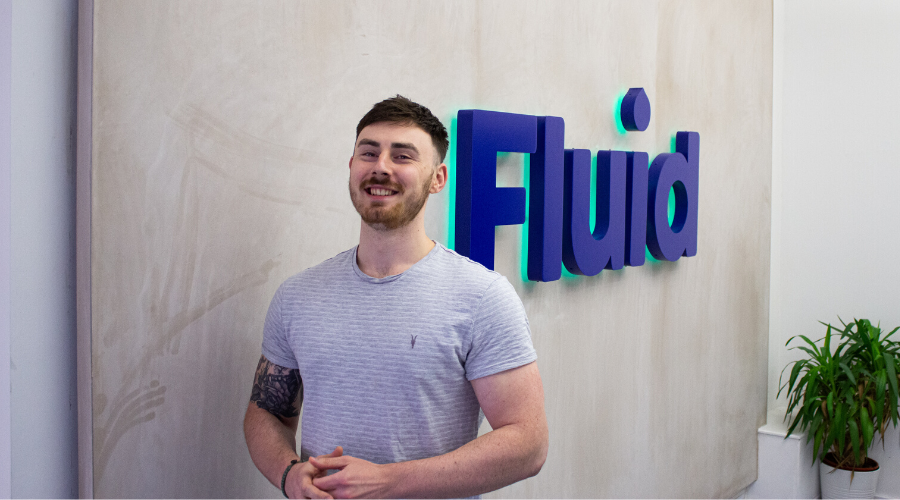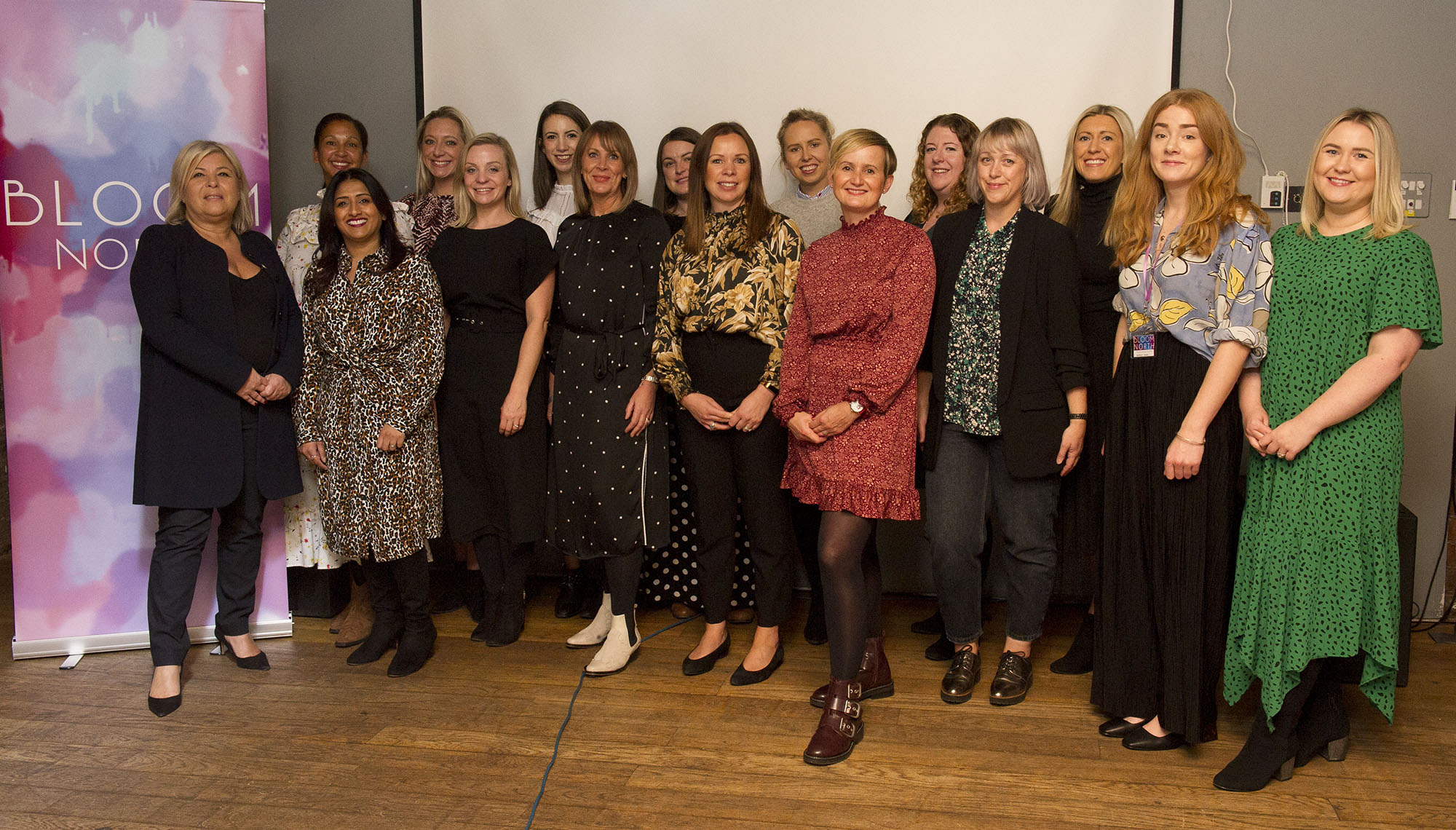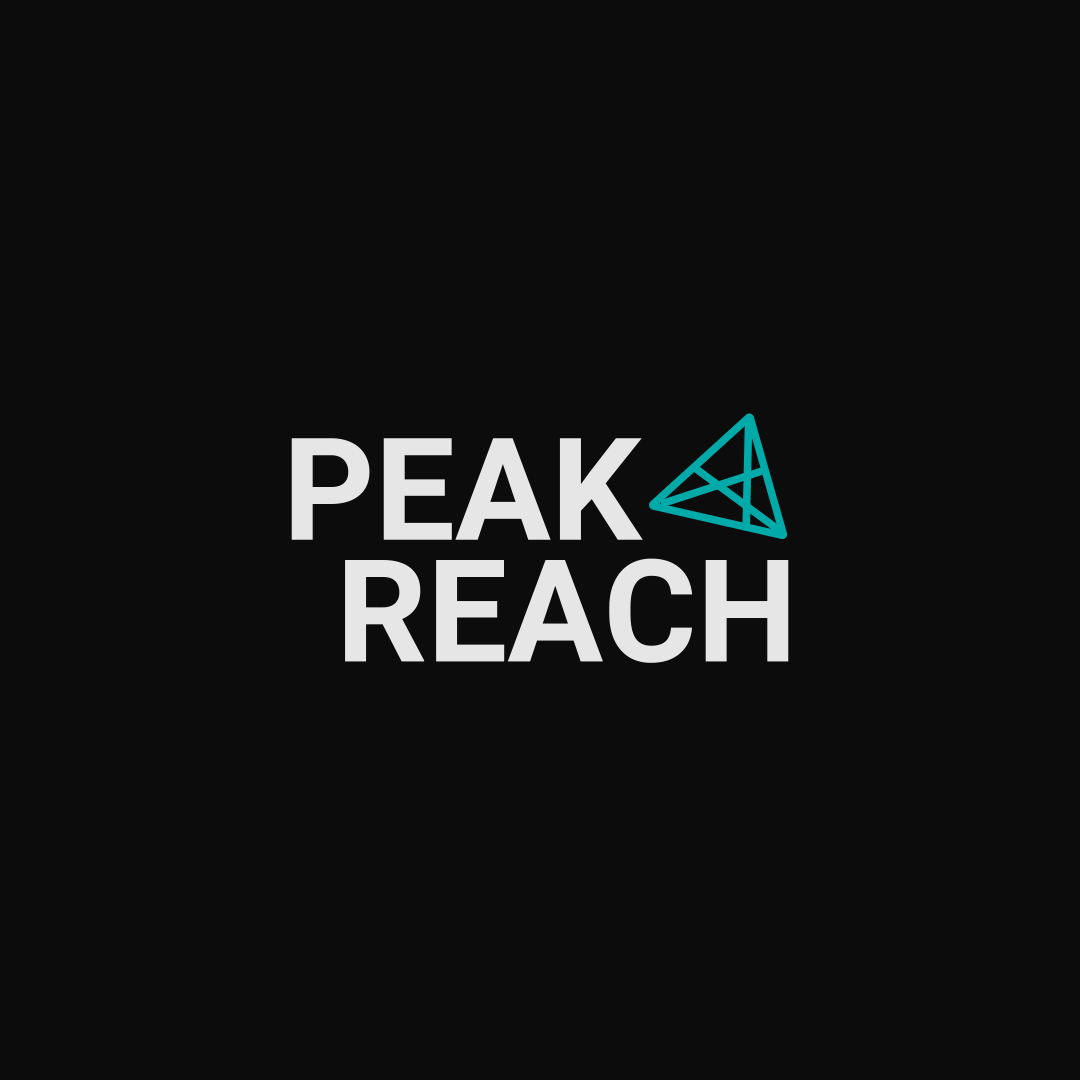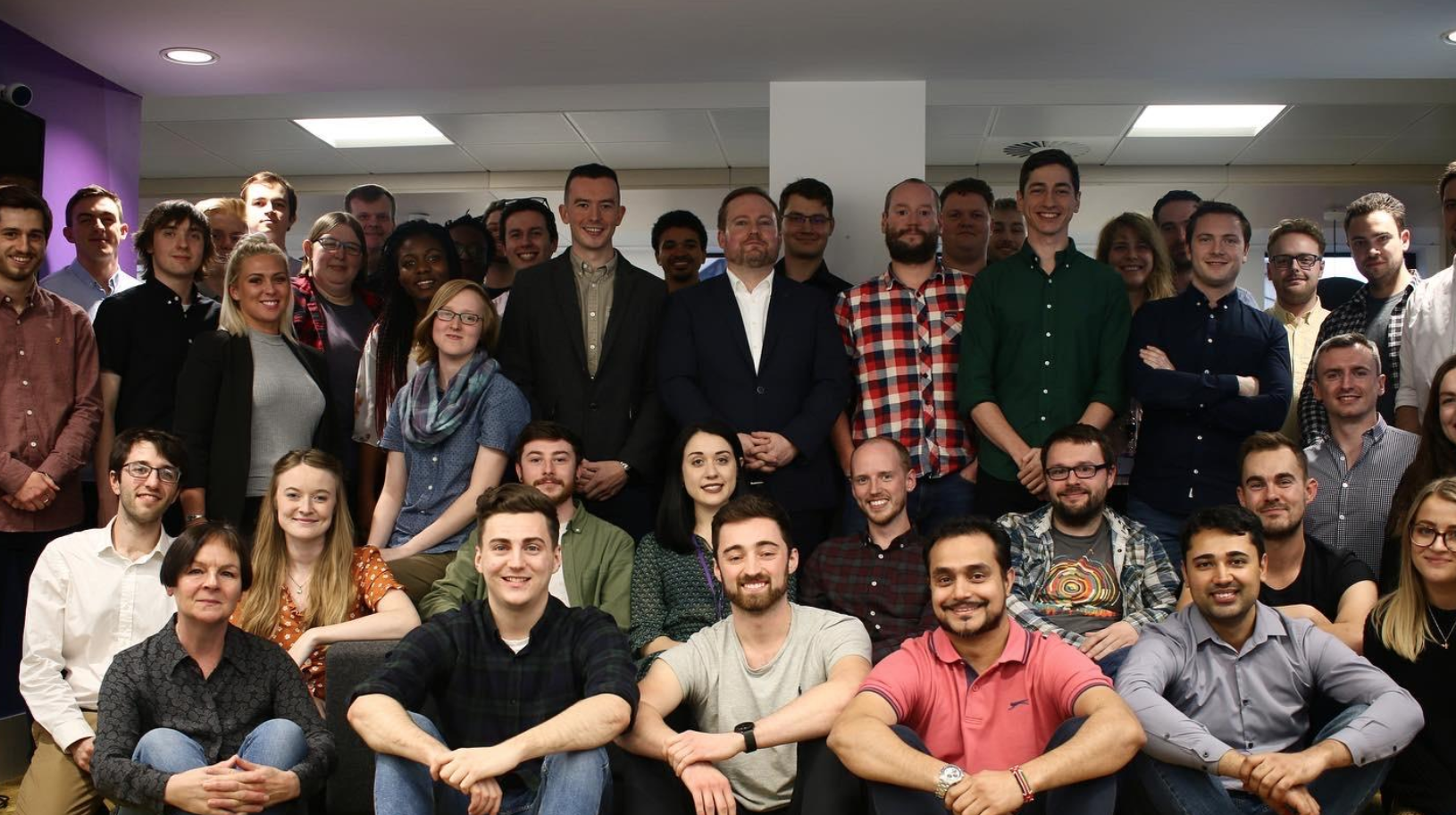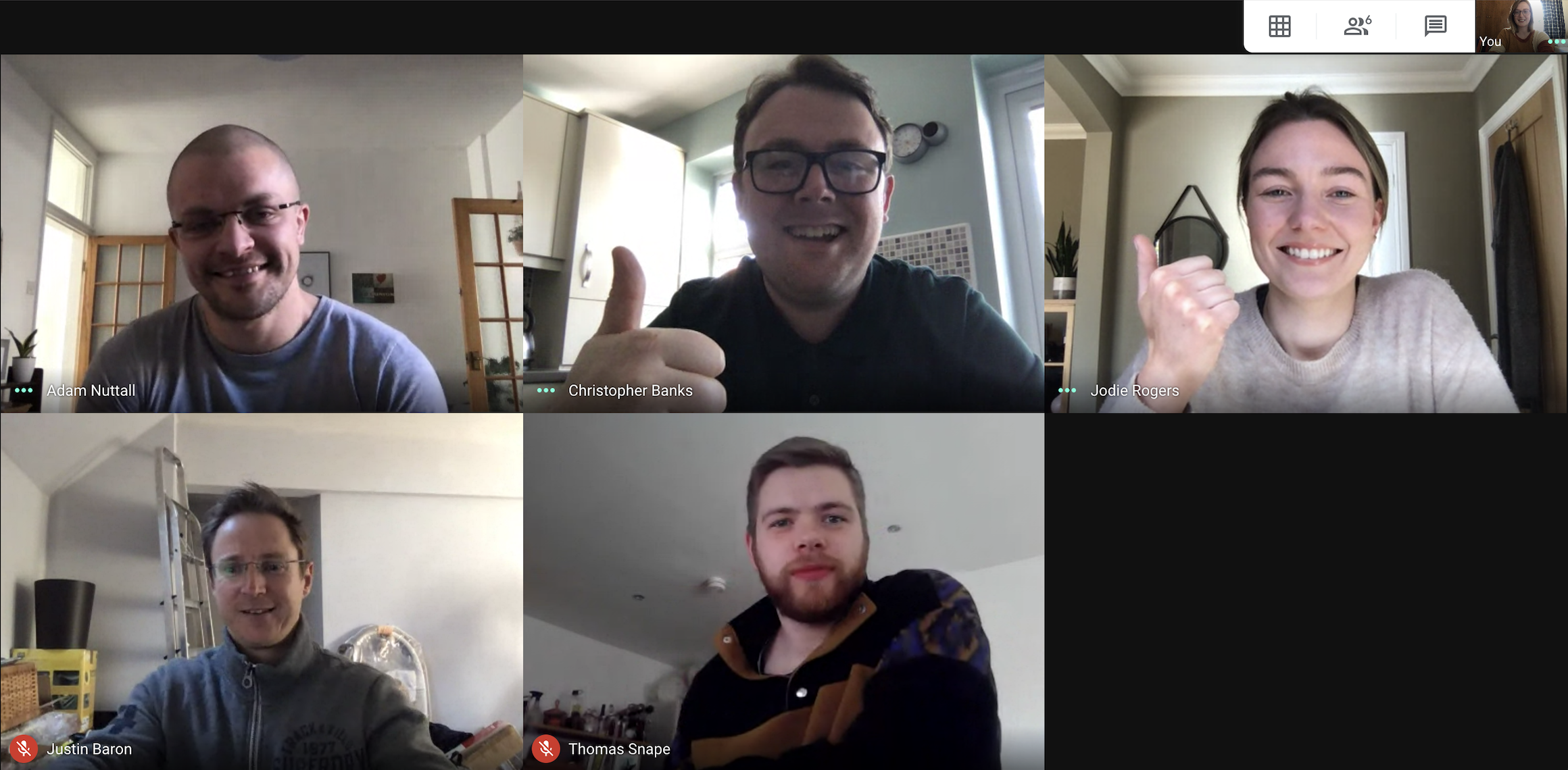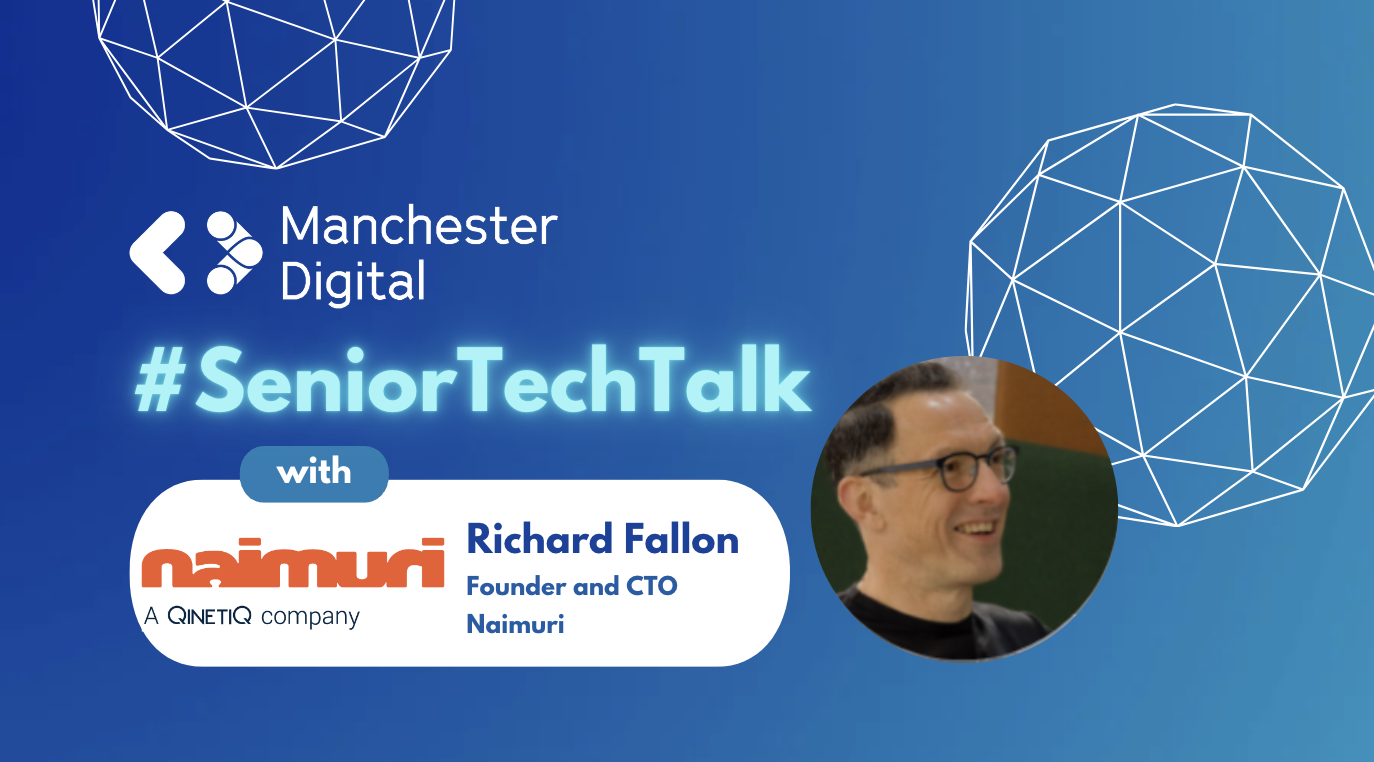
Software development and data analytics firm Naimuri are working to make the UK a safer and better place, revolutionising data intelligence, and law enforcement through the use of technology.
To tell us more about the work Naimuri do, their vision and opportunities to join their team, we're joined for the latest #SeniorTechTalk by Richard Fallon, Founder and CTO.
Could you tell us a bit about Naimuri and your goals as an organisation?
The first place to start is with our vision.
We wrote it a number of years ago now, which was, as with all visions, meant to be a little bit challenging. We looked to create a vision which could help revolutionise the work of our customers through the use of technology.
The word ‘revolutionise’ was really the key one here. I remember fairly shortly after agreeing our vision, we were presenting to one of our customers, and I stood in front of them and told them how we were going to revolutionise what they do through technology. I was almost dying in my shoes - the idea that this is something we were going to deliver for clients!
I do think, with the benefit of hindsight, that we've been able to do this quite well. We've been able to find ways of using technology to deliver value to our customers much quicker - doing this time and time again. It’s something that is really key to what we continually talk about at Naimuri - getting working software into our customers hands as quickly as possible.
One of our goals is to be able to deliver anything from proof of concepts that might demonstrate the art of the possible, up to more resilient operational systems. The majority of our clients work in law enforcement or the UK Government, and it's a really interesting space with some really compelling challenges.
Naimuri is ultimately a software consultancy - we don't build products, we have a number of projects where we deliver solutions for our customers. That’s key to what our business is all about, providing capability to customers.
And what is your role within the company?
This question always makes me smile.
Although my background is firmly in technology, when you start a company, and I was one of the original founders, the role can involve everything from cleaning the toilets to establishing partnerships.
As we’ve grown and matured I am now the CTO, and my role now involves making sure the technical teams are moving in the right direction. As we've grown, it's less and less about particular ideas that I might have, and more about shaping and refining other people's ideas and putting some of those things into practice.
A good example of this is that we now have capability leads in the areas of software engineering and platforms - basically where we run stuff, whether that's cloud or on customers’ private networks, and also data science. So there are people now responsible for those areas, and they have their own views and ideas of how things should work, or what they want to do with it and it's my job just to make sure that those ideas are relatively sane and achievable, and then to give them the things that they need to make it happen.
So one of the key things is about moving in the right direction.
Something that I've always done and has been part of my role in particular, is to make sure that as an organisation, we're constantly refreshing ourselves. We can't just stand still and obviously the world of technology is always developing at an incredible pace. If we didn't do anything or react to the changes, then we would still be just a set of Java developers building against an Oracle database.
Instead, you need to keep seeing what the latest trends are, what new technologies are breaking through and making sure that we're keeping up to date.
Also, from a company perspective, I am continually making sure that we've still got plenty of initiatives developing to keep the company fresh.
It is important to look outwards rather than just internally, to improve our own capabilities and to find other like-minded organisations (from both the worlds of business and academia) to collaborate, work together and/or form partnerships.
Given the clients you work with, there is understandably only so much you can tell us, but are there any recent projects that you are particularly proud of that you can share with us?
We have a number of different client projects that we run within the company, some of which have been going for a very long time and many since we first started.
We're very proud of those that have been going since we launched, as the ability to keep delivering value to customers over and over again, is something that you can't take for granted.
But at the other end of the spectrum, we have new customers who may want something very quickly and it could just be a standalone project or it may grow into follow-on work on subsequent projects.
A common thing that we've seen is where we're challenging the way that things have been done before. Whether that's trying to deliver quickly or deliver something in a different way, those are the things I’m really proud of.
A really good example would be when we did a prototype for the Department for Transport, who were looking at a project around airport securities. We did a prototype, and one of the statements that came back was “Where have you been - we've been inundated with consultants giving us recommendation and paperwork, but not anything tangible or anything that we can see”. We delivered a working prototype within weeks that gave them the confidence to be able to go on and say, actually, we can do this project.
So in a way it’s challenging that thing where someone says “you can't do that”. We challenge the classical view that “We've always done it this way and this is the way it has to be done”.
Another good example of something we can talk about, is that we were recently acquired by Qinetiq, a like-minded organisation (in many ways) who have got a very strong research angle and were born out of government.
Aside from the acquisition, there's been quite a decent investment to firstly help us grow, recruit new talent and to also build a Data Intelligence Centre of Excellence.
Sounds amazing, right? Who doesn't want one of those? Until you start to think, well, what is a centre of excellence for data intelligence? What does that really mean? We've been agonising over it for months and putting our thoughts into place.
One of the things we've come up with is an Innovation Sprint with customers in a really intense period from start to finish, so pretty much from meeting the customer, understanding some of their problems and delivering working software into their hands all within the space of a week. It's a really good example of where we've taken lessons that we've learned over the years and keep repackaging and repurposing in order to be able to continue to deliver that value quickly.
That is something that we never really considered, certainly two years ago, and we're even surprising ourselves in terms of how we're managing to get things done. We've probably run about five or six of these ‘Innovation Sprints’ and we can see how well it's landing with the customers. Some of these are leading to the customer saying, “we really liked what you did, perhaps we can do a bigger piece of work together”, so it’s a really good way of building trust from both sides that we can see that they're the kind of people that we can work with and they can see that we're the kind of people who can deliver what they need.
We often talk about how difficult it is to recruit for digital and tech roles. What are some of the steps you’ve taken at Naimuri to attract and retain top tech talent?
Firstly, it is really difficult and has always been really difficult, whilst also being really important. For Naimuri, there are a couple of things that have always really mattered. One is to keep our customers happy, and the other is to keep our people happy. If we’re doing that, then we’re doing well.
Recruitment has got really challenging over the last year or two. The Great Resignation is a common theme. Although we've not done too badly through that, we still have to recognise that it exists and everyone is reassessing what's important to them.
We've put a lot of effort into this process. Firstly, reading and seeing what other organisations are doing and speaking to our partners to understand their recruitment processes. A key thing we’ve looked at is ‘character over competence’. We're looking for good people. Obviously we want them to be good at the job, but if the character is good then if they can't do everything we’re asking of them right now, if the character and their approach is right, then the rest will come into focus.
We put quite a lot of effort into addressing something called the halo effect. So for example when you meet somebody for the first time, they may be wearing a t-shirt of a band you like and you think to yourself “I associate with those, I recognise those”. Before you know it you’ve made a sort of unconscious bias that you like this person. It really influences your opinions of people when you've only got an hour or so to make a decision on them.
We've put a lot of effort into how we structure the interviews, so that we get what we want from the questioning and that we tick off certain things that we're looking for.
Another thing that is really important, and one of the most difficult things to address is how to be inclusive with everyone to try and have as diverse a set of people with as many different viewpoints as possible. First of all you have to ask yourself, are we seeing the right sets of people even walking through the door in the first place, and if not how do we address that? And then when we do see the right sets of people, you have to make sure that you’re not having unconscious bias in terms of making decisions. That can be really difficult!
We’re constantly looking at how we run the process, who is involved, what the questions are and ensuring we set ourselves up for success with this kind of stuff. We’re growing at a fast rate, and have been ever since we first started. In the early days, we practised what I would call ‘cautious growth’ where we only recruited for the type of people or number of roles that we needed, but now we’ve been a bit more aggressive with it - instead of maybe 10 new hires a year we’re now seeing 5 to 10 per month.
How do we make sure that people want to stay with us? I don't think there's a day that goes by when we don't talk in some form or other about how we make this a great place to work and what we can do to keep improving that.
A common theme with our approach to this is around allowing our people to make as many decisions as possible about the environment and place in which they work. We've got internal power groups, which are basically a collection of small groups of people from within the company who focus on topics such as diversity, collaborative ways of working, environmental impact, wellbeing, company values.
Over the years we’ve done a number of different things, such as Value of the Month competitions where we celebrate one of our values and we look at how different people have done something that month that shows how they've been living the value.
I think these things really help, especially when they are run by the people rather than from the top and it’s the people who are driving the company values.
We’ve recently brought in somebody who is absolutely responsible for onboarding. We've had a few people who’ve looked at it previously, but now that there is a clearly defined role for it and they can plug into recruitment and also what our capability leads are doing.
We've got technical communities which are all about promoting discussion, about thinking and about sharing lessons learned across the different projects that the company is running. We’ve been developing a training curriculum, so that when people join us, there is a set of fundamentals that they can have to be ready to do the job they’re needed to do.
Finally, I should just mention the ‘pay’ word. It’s always been an aim of ours that we can pay well, and over the years we’ve done a number of market reviews to ensure that we are. Over the last year we’ve seen certain areas rocket in terms of pay, and it is a challenge to keep the balance right.
For some people pay is really important, or the most important thing about their job. But for others, it’s about the balance of being paid the right amount but also getting fulfilment from the work they’re doing. We’ve worked really hard to make sure that people are getting paid well for what they’re doing, but also that they’re really happy, satisfied and fulfilled with working for Naimuri and our culture and opportunities.
How important is it to Naimuri to be a part of Manchester's digital community and are there any ways that you contribute to the ecosystem?
It’s very important to us to be part of the community here, with having one of the biggest tech communities in Europe. We are very keen to build our brand and for individuals and other businesses in the local community to know more about who we are and what we do.
We've really stepped up our partnership with the universities within the last year. We've got a small team, working to help build these relationships and some of this is driven by our Data Intelligence Centre of Excellence. These partnerships are really going much, much better than I ever thought they would actually.
Going back a few years (over twenty!), I did a Masters and at the end, having done quite well, was taken to one side and told I might want to apply to one of the brightest and most promising companies in the area at the time. I ended up going to work there and it was a fantastic start to my career with technology, and that linkage between business and academia really left a mark on me. I want Naimuri to be a place where people who are finishing university are recommended in a similar way. I’d love for us to be at that stage and be part of the community.
Having lived and worked in the North West for most of my life, I really want to help put Manchester on the map as a technology place for innovation capability. I think that there's much more that can be done to make Manchester the place to be where students who come here and go to the university know that this is the technology centre for the UK and want to start their careers here.
Aside from recruiting people from the universities, we're now sponsoring some MSC projects and we may be doing some PhDs. We also have created an event called TAG, which stands for Technology, Academia and Government. We will be organising regular events, which aim to align technology closer to our government customers, taking some of the really smart research ideas and seeing how that can help our customers’ problems.
Aside from the academia angle, as a company we attend regular meet-ups and our technical communities are plugged into all the events that are going on and even connected directly into our internal communications networks, and we’ve got our teams involved and attending these different events.
We recently sponsored Manchester Digital’s Digital Skills Festival as well of course, which was a fantastic week of events.
Finally, can you tell us about some of the opportunities that are currently available for people to work at Naimuri?
Yes, so as mentioned we’ve been recruiting ever since we first started. We’re still growing, and in some ways the things that we’re looking for haven’t changed too much. We're ultimately looking for good people.
What makes a good person? Well, that will come out in the interview. But we work with customers across a range of different problem areas and deliver different software projects, although with some consistencies. We’re always considering Testers, Project Managers, Product Owners and Developers. A lot of the time we're using public clouds, so people with Python and Java skills are key.
DevOps specialists is definitely one area that has changed a lot in terms of recruitment, particularly with regards to the package expectations. Here, we're taking the approach that we are developing our own people to have this capability, but we are still looking for people with that knowledge and expertise. Anything around delivering software projects. We need delivery managers, we need testers.
I mentioned our Data Intelligence Centre of Excellence earlier, and we are growing a new capability around the area of data science. We’re doing some really interesting things with datasets and model catalogues - that's a new area for us.
But typically, it's good people that we’re looking for. People with a good character, who have an excellent approach to work and who want to help us on our mission to make the ‘UK a safer place to be’.
Thank you Richard!
To find out more about careers at Naimuri, click here.

